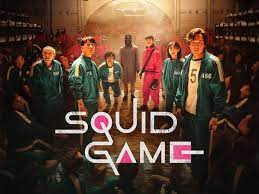With its gripping story and critical acclaim, “Squid Game,” a South Korean survival drama, quickly became a global phenomenon after its release on Netflix. The show involves contestants who are deeply in debt playing children’s games with deadly twists for the chance to win a massive cash prize. Its popularity among audiences, including students, necessitates that teachers understand its content and themes as they may surface in discussions or influence student behavior. Here are key points educators should be aware of:
1. Violence and Mature Themes: “Squid Game” is known for its graphic violence and mature themes. Teachers should be aware that the show is rated TV-MA (for mature audiences) and includes scenes of death, brutality, and emotional distress. While it could serve as a basis for discussions about media impact and desensitization to violence, educators must be mindful of students’ varying levels of exposure and sensitivity to such content.
2. Cultural Relevance: The series offers insights into South Korean culture and socio-economic issues which can be an excellent opportunity for cross-cultural learning and discussions about the universal themes of inequality, capitalism, and competition.
3. Psychological Impact: Teachers should be aware of the psychological effects intense shows like “Squid Game” can have on young viewers. Some may experience anxiety, fear, or stress from viewing or discussing the series at school.
4. Peer Pressure: The popularity of “Squid Game” could lead to instances of peer pressure with students feeling compelled to watch the show in order to fit in with their friends. Educators can play a role by fostering an inclusive environment where students feel accepted regardless of their viewing choices.
5. Mimicking Behavior: Some schools have reported incidents where children recreate games from the show, sometimes resulting in harmful behavior. Teachers should be vigilant for any signs of such reenactments which might endanger students.
6. Teachable Moments: Despite its tough exterior, “Squid Game” can present teachable moments regarding ethics, morality, human behavior under extreme conditions, and economic struggles. It opens avenues for deep philosophical questions suitable for older student discussions.
7. Parental Engagement: Engaging with parents about their children’s media consumption can help create a more cohesive approach to navigating such topics outside school hours.
Teachers are not just purveyors of academic knowledge but also guides in helping students navigate the complexities of their social world which increasingly includes digital media phenomena like “Squid Game.” Regardless of whether they choose to use it as an educational tool or not, awareness and readiness to address its impact are crucial elements of today’s teaching landscape.





